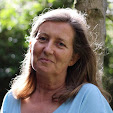But this term Tom is a changed boy – polite, cooperative, calm and ready to join in with the others. I initially put it down to growing up, but one of the other helpers had another theory. Tom had a new friend in the village and had spent much of the summer with his family; their influence had made Tom easier with himself.
I've seen this happen a number of times in the village over the years: one family taking a friend of their son under their wing and providing the stability and the guidance his own family were unable to give at the time. A bit like informal fostering, or an extended family. I'm sure this has always happened the world over, but it's not something that's considered when we think about raising children. Perhaps it's time to be a bit more conscious of the old saying "it takes a village to raise a child".
